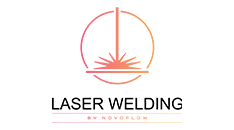Can laser cleaning damage sensitive materials?
Laser cleaning can damage delicate materials if the correct parameters and settings are not used. It should be noted that sensitive materials are particularly susceptible to the effects of laser energy due to their composition or structure. This can lead to undesirable effects such as burns, discoloration or other forms of damage.
Therefore, it is crucial to carefully tailor the cleaning process to the specific requirements of the material. This includes selecting appropriate laser parameters such as energy intensity, pulse duration and focusing to ensure cleaning is effective without damaging the material.
In addition, laser cleaning requires a thorough preliminary examination of the material to be cleaned in order to identify potential risks and take appropriate precautions. This includes evaluating the thermal conductivity, chemical composition and surface structure of the material to determine the optimal cleaning method.
It is also important to monitor and control the work environment and environmental conditions during the cleaning process to minimize the risk of damage. Fluctuations in temperature, humidity or environmental stress can have a negative impact on cleaning success and increase the risk of damage.
By carefully adapting the cleaning process to the specific properties of the material as well as monitoring and controlling environmental conditions, the risk of damage to sensitive materials during laser cleaning can be minimized. This allows for effective cleaning without endangering the material.
Can laser cleaning damage sensitive materials?
Laser cleaning can damage delicate materials if the correct parameters and settings are not used. It should be noted that sensitive materials are particularly susceptible to the effects of laser energy due to their composition or structure. This can lead to undesirable effects such as burns, discoloration or other forms of damage.
Therefore, it is crucial to carefully tailor the cleaning process to the specific requirements of the material. This includes selecting appropriate laser parameters such as energy intensity, pulse duration and focusing to ensure cleaning is effective without damaging the material.
In addition, laser cleaning requires a thorough preliminary examination of the material to be cleaned in order to identify potential risks and take appropriate precautions. This includes evaluating the thermal conductivity, chemical composition and surface structure of the material to determine the optimal cleaning method.
It is also important to monitor and control the work environment and environmental conditions during the cleaning process to minimize the risk of damage. Fluctuations in temperature, humidity or environmental stress can have a negative impact on cleaning success and increase the risk of damage.
By carefully adapting the cleaning process to the specific properties of the material as well as monitoring and controlling environmental conditions, the risk of damage to sensitive materials during laser cleaning can be minimized. This allows for effective cleaning without endangering the material.
